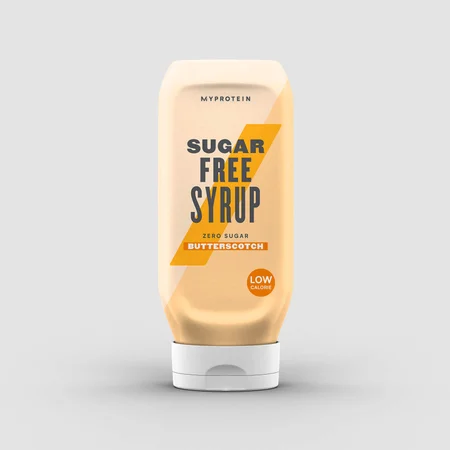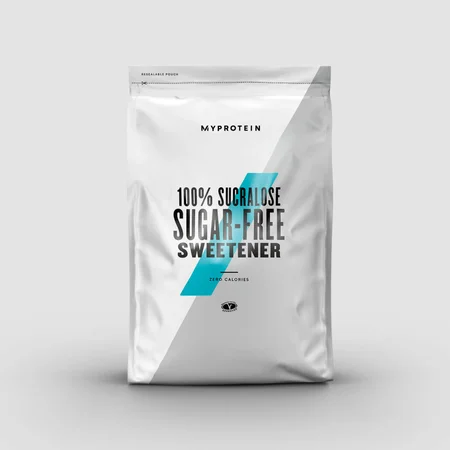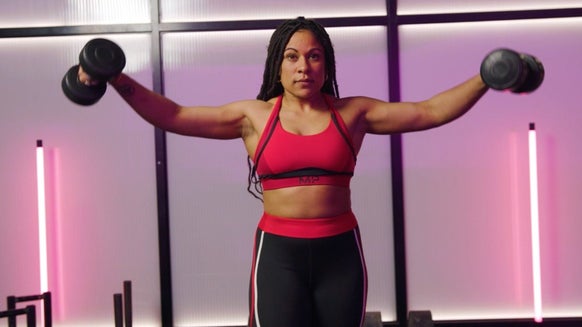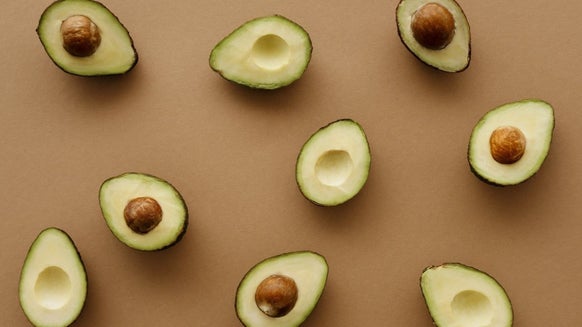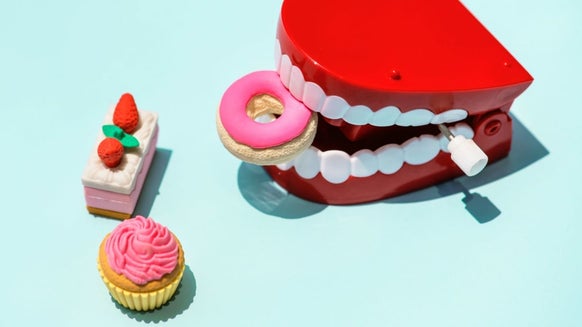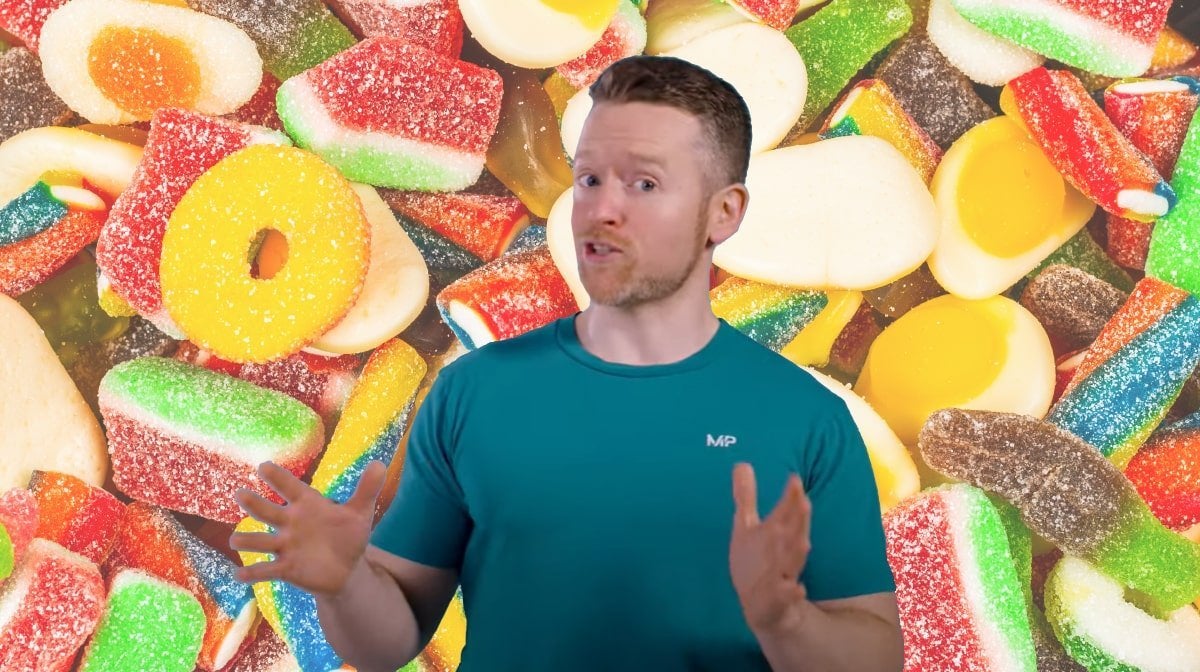
Chocolate, crisps, soft drinks — they’re all super tasty, but packed full of sugar. Is that a problem?
Expert nutritionist Richie Kirwan is here again to dispel the rumours, separating sweet truth from fiction so you can make an informed decision about what you’re putting into your body. There’s a lot to unpack, so put the kettle on, make a brew, and drink it all in. Sugar is optional.
What is sugar?
Sugars are carbohydrates and carbs are one of the principal macronutrients we can get from plant foods.
Big word incoming... monosaccharides. The most basic carbohydrates are monosaccharides, which consist of only one molecule.
- Glucose
- Fructose
- Galactose
Monosaccharides can gang up and form a disaccharide. These are sugars made up of two monosaccharides.
Myth busting
Time for some quick nutrition maths:
- Glucose + glucose = maltose (found in wheat, barley and some fruit)
- Glucose + galactose = lactose (found in milk)
- Glucose + fructose = sucrose (table sugar)
So that's where all the hate for sugar has come from. That pesky sucrose. Richie says its overuse is likely to have significantly contributed to the rise of body weight in the developed world over the last 50 years.
You've heard it before, but you’re going to hear it again. Everything in moderation. A bit of sugar here and there is not going to harm you. Bucket loads of sugar, however, is where the problem lies.
And it’s important, beyond important in fact, to note that sugar is not “toxic”. It's the opposite. It's essential in the human body. But hold your horses. Don’t stockpile on the sugary treats just yet. Richie never said you actually need to eat the sugar. Sorry to get you all excited.
Our blood is full of glucose, among other things, and our bodies are constantly fighting to maintain blood sugar levels. But our bodies can make glucose from protein and fat in a process called gluconeogenesis.
What happens when we eat sugar?
When you eat carbs, whether this is pasta, bread, potatoes or a chocolate bar, your body digests it quickly and any glucose is absorbed into your blood. So, naturally, your blood glucose will rise. And if you’re healthy, your body will regulate your blood sugar levels quickly so they return to the normal level.
Does sugar make you gain fat?
This view is down to a poor understanding of our friend insulin and how it works. Not to worry, that’s why Richie is on hand.
When you eat any carbs, they’re digested into sugar that enters your bloodstream, which alerts your body to begin producing insulin. Insulin works to lower blood glucose.
But how does it do this?
- Increases burning of sugar
- Reduces the burning of fat
- Causes your body to store more carbs either in your muscles as glycogen, or as fat in your fat cells
And there it is. The reason that so many people are scared of carbs and sugar. They think that “a moment on the lips, a lifetime of the hips” is literal, and they’ll gain body fat immediately. Well, we say fake news to that.
Insulin is only in effect for a couple of hours, while your blood sugar levels are high. After your blood sugar levels return to normal, and your body goes back to burning fat.
Anyway, let's not forget that calories are the key to weight loss. Remember: you must be in a calorie deficit if you want to lose fat.
Fructose
This is metabolised slightly differently to the other monosaccharides. It's more easily converted to fat in the liver. But this will only cause weight gain if someone is in a calorie surplus.
Once again, it all comes back to calories. There's no escape.
What’s the issue
After busting all these sugar myths, you’re most likely wondering what the issue with sugar is. Richie mentioned that sugar is an issue if eaten in excess, so we should probably break that down a little bit more.
Processed foods have become more readily available over the past 50 years, particularly ultra-processed snack foods. And they’re often so damn tempting and tasty. But they have four properties that might make them slightly less appealing...
- Calorie dense
- Hyper palatable (really tasty)
- Not very filling
- Super cheap
So it’s very easy to eat too much of them. And there lies the problem.
Take Home Message
Sugar is not the problem if eaten in moderation. If you’re healthy and don’t consume more calories than your body needs, there’s no harm in having it in your diet. Sugar does not equal weight gain. But you do you. Now you’ve got the facts, you can make your own decision on what works well for you.
But one piece of advice from Richie to keep in mind: moderation! Don’t eat too much sugary and processed foods.
READ THESE NEXT:

15 Ways To Stop Sugar Cravings
The answers could lie in peanut butter......

